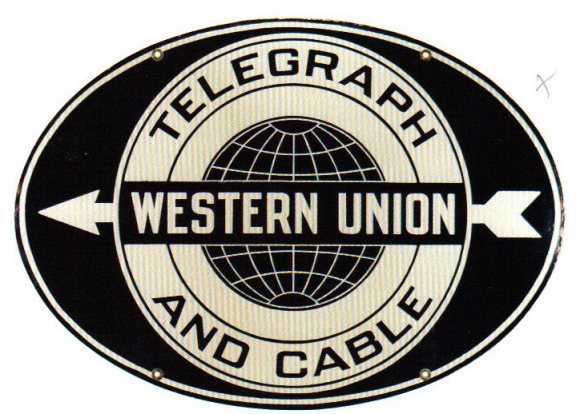Archive for August 11th, 2015
Call Western Union
Posted by Joshua Sharf in 2016 Presidential Race, Governor 2010 on August 11th, 2015
 “If you want to send a message, call Western Union.” – Samuel Goldwyn
“If you want to send a message, call Western Union.” – Samuel Goldwyn
Much if not all of the Trump boomlet is fueled by a frustration with and distrust of a party establishment that seems not only cozy with progressives, but comfortable with progressivism. Articles by both Reihan Salam and Glenn Reynolds have made this point, and it’s one that Mark Steyn has talked about. Americans are happy to play politics between the 40-yard-lines. Given a perpetual choice between 49-yard-lines, though, they rebel.
The problem is that this rebellion isn’t necessarily coherent, and is usually destructive. In 1968, Democrats sent a message to Lyndon Johnson, and got Richard Nixon elected. In 1992, Republicans sent a message to George H.W. Bush in the form of Pat Buchanan, and got Bill Clinton elected.
A close analogy is here in Colorado in the 2010 governor’s race. Unpopular incumbent Democrat Bill Ritter decided not to run for re-election amid rumors of personal scandal. The Republicans, with festering dissatisfaction at the “establishment” after losing marquee statewide races in 2004, 2006, and 2008, had a choice between stalwart conservative, but presumed establishment favorite, Rep. Scott McInnis of Glenwood Springs, and unknown, blank-slate, self-professed Tea Party businessman Dan Maes. When fellow Republicans satisfied a personal vendetta by leaking allegations of plagiarism just before the primary election, many Republicans registered their complaints by either not voting for McInnis or voting for Maes, who squeaked by with a major upset win.
The other factor was a widespread, small-l libertarian-fueled distrust and honestly hatred of the party officials and party officialdom. I was at Denver party breakfasts in 2008 when Dick Wadhams was raked over the coals by the Ron Paul people, and that resentfulness has percolated (and been stoked by the large-l Libertarians) ever since. It certainly was around in 2010.
Maes, frankly, had no business being the nominee, and no business being a statewide candidate. He had no idea what he was doing, no interest, apparently, in the nuts and bolts of an active campaign, no willingness to spend endless hours on the phone raising money. And the Republican party blew as good an opportunity as we ever had in the Tea Party year of 2010 to reassert control over state government.
The current national dynamics eerily and scarily resemble those of 2010 here in Colorado. Candidates actually capable of uniting the various factions of the party, or bringing a unique and valuable message, are getting shut out of the process because it’s All Trump All The Time.
While I remain convinced that there’s no way on God’s green earth the party will actually nominate Donald Trump as its presidential candidate, he’s sucking oxygen from as deep and talented a field as I’ve seen in my lifetime at the national level.
That depth, by the way, is also in large part the result of a 20-year effort to grow the party at the state legislative level. It’s meant letting each state party find its way and find horses for courses, as the saying goes. That’s resulted in Republican government in states as diverse as Michigan and Alabama, but it’s also meant that those state parties differ much more from each other than they might once have. The only person capable of uniting a national party is a presidential candidate, and the nominating process is a means of having the debate to decide where we want to go nationally.
A political party is a coalition of diverse interests, but there are elements outside the party who can’t stand that fact, and would be perfectly delighted to see the national party dissolve into factional bickering and resentfulness. There’s absolutely no good reason to let that happen, or to nominate less than our best this year.



